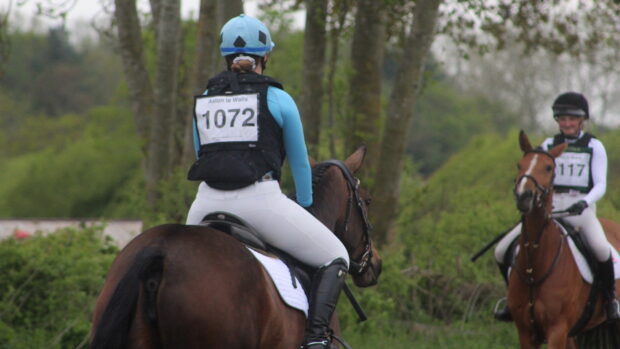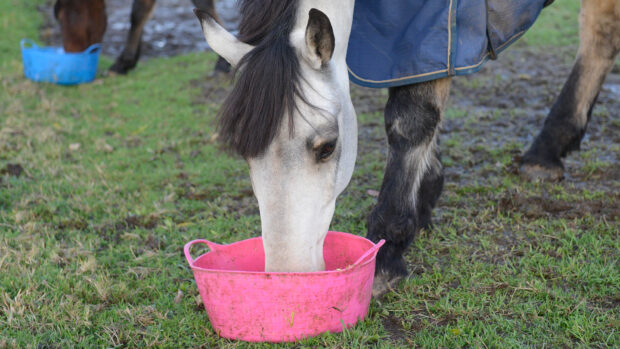The future of Dartmoor’s hill ponies hangs in the balance as DEFRA and the Dartmoor Commoners’ Council (DCC) try to thrash out a compromise over final passport arrangements.
When ponies go to market, DEFRA wants the vendor – not the buyer, as proposed by the DCC – to pay for a passport. But with pony prices as low as £8 and passports costing £10 it is feared that under this system many Commoners would give up their herds to avoid making a loss.
Legislation published three weeks ago (news, 27 May) included exemptions for semi-feral ponies on Dartmoor and the New Forest. A passport system for ponies registered with the New Forest Verderers has been devised, whereby vendors must present ponies at Beaulieu Road Sales with a completed silhouette, plus payment for the passport. The buyer completes the process with the issuing organisation. But negotiation over an arrangement for the Dartmoor hill ponies has reached deadlock.
Cherry Seage, secretary of the Dartmoor Commoners’ Council, explains: “We presented our proposal to DEFRA two weeks ago. It’s similar to the New Forest in that people would present ponies at market with a filled-in passport.
“Ponies which are separated off in the drifts at six months to a year old would go to auction with metal tags that clip deep into the mane, with a number registered with the Dartmoor Commoners’ Council (DCC).
“Buyers at Dartmoor’s two markets would then be able to pay for and obtain a passport before a pony leaves the sale. Ponies destined for slaughter would not need a passport — the mane clip would be their ID.”
If DEFRA refuses to adopt the DCC’s suggestion that buyers pay for passports, Seage fears many of the 80-100 Commoners who, between them keep 1,500 ponies, would give up.
Numbers have already declined. Five years ago there were 3,000 ponies on the moor but the market collapsed due to overstocking and lack of demand, the price falling as low as £2 for a foal until a minimum of £8 was set last year.
“Some farmers have already sold their herds because they can’t cope with the extra expense of a passport, and more will do so if the onus is on them to pay,” adds Cherry.
“The ponies are essential both for access and conservation – they keep the gorse down, which cattle and sheep won’t eat.”
A DEFRA spokesman says: “The door is still open for the Dartmoor hill ponies. We have to resolve this by the autumn sales, but the DCC’s proposal was not acceptable. The ball is in its court at the moment.”
At the end of last year, 3,561 ponies were kept on the New Forest, and many will now be added to the Verderers’ ID list. This is free, but the owner must complete a silhouette.
The minimum price for a New Forest pony at the sales is 10 guineas, but most fetch more because the market has picked up since the number of stallions was reduced in a bid to improve stock. As a result, the financial burden of a passport has led to less debate than on Dartmoors.
“We are now breeding fewer and better ponies. At the spring sales this year, prices weren’t too bad, but you never know until the day,” says Gill Wright, chairman of the New Forest Pony and Cattle Breeding Society.
Meanwhile, the Hill Pony Improvement Society for Wales has applied for exemption for the 700-plus pure-bred Welsh Mountain Ponies which run on the hills, all registered with the Welsh Pony and Cob Society (WPCS).
Colin Thomas, secretary of the Hill Pony Improvement Society for Wales, says: “The Welsh Assembly is looking favourably on our proposal for exemption. It would be very difficult to continue keeping ponies on the hills if there isn’t a special arrangement.”
Any exemption would not apply to unregistered hill ponies of indiscriminate breeding, and it is not known how many unregistered ponies live on the hills.
“There’s been a drive to discourage the breeding of these ponies: the terrain is more suitable for pure-breds,” says Thomas. “But the gene bank of Welsh Mountain Ponies is very low, so the WPCS is working to keep them on the hills. If you take these ponies off this terrain they lose their hardiness.”
|
||
 |
||


 Get up to 19 issues FREE
Get up to 19 issues FREE TO SUBSCRIBE
TO SUBSCRIBE 


